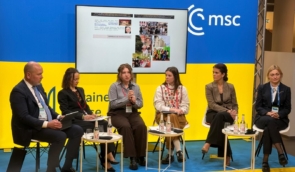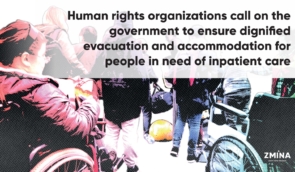ZMINA highlights systematic attacks on media under Russia’s aggression at the OSCE Conference
On the margins of the OSCE Warsaw Human Dimension Conference, a side event “Targeting Truth: Media Freedom Under Russia’s Aggression in Ukraine” brought together journalists, human rights defenders, and diplomats to shed light on unprecedented threats to media freedom because of the Russian invasion. The discussion, moderated by the Head of UK Delegation to the OSCE, Ambassador Neil Holland, highlighted the ongoing violations of freedom of expression and the persecution of journalists in Russian-occupied territories.
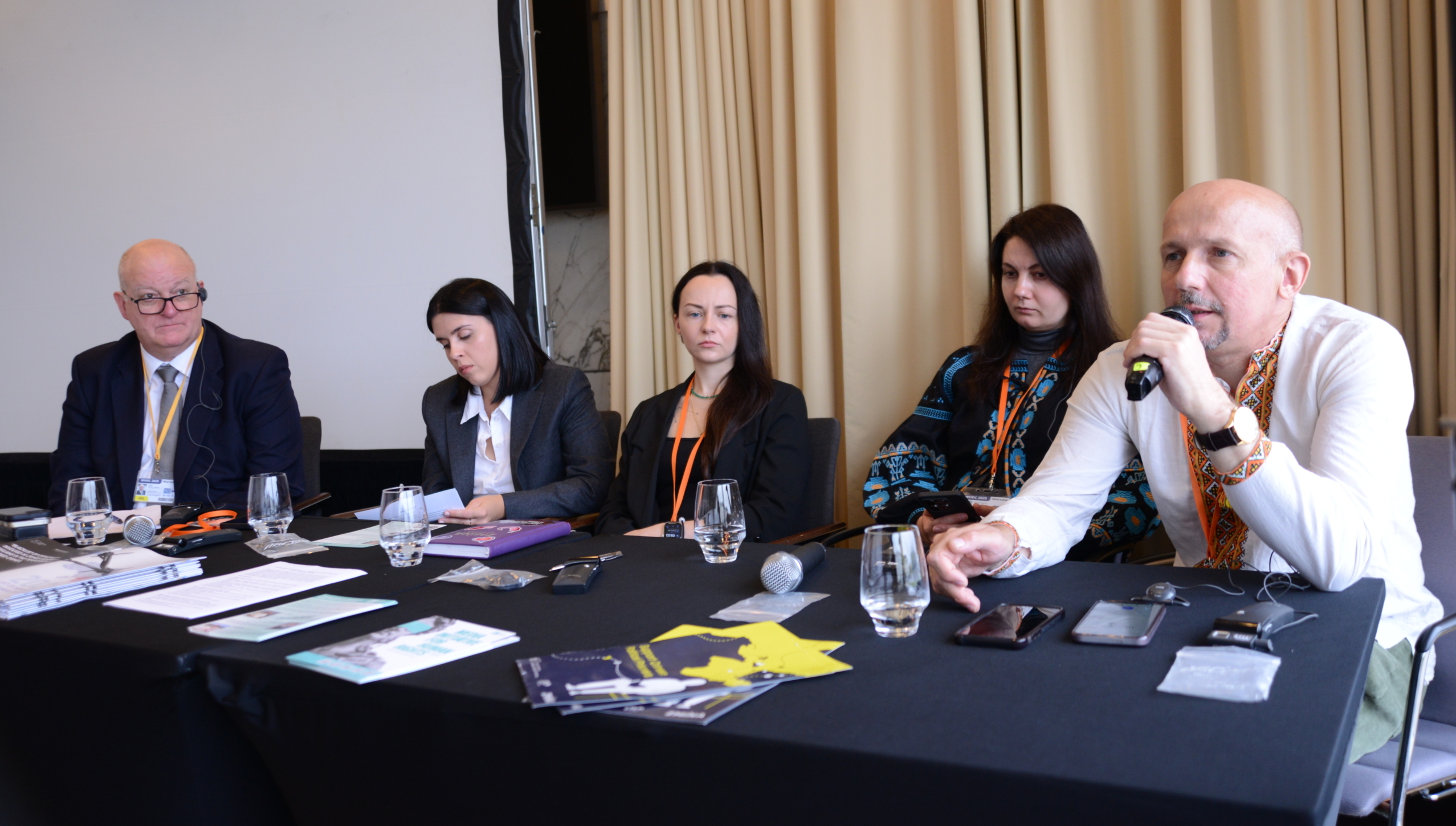 Photo credit: Media Initiative for Human Rights
Photo credit: Media Initiative for Human RightsViktoria Nesterenko, Program Manager from the Human Rights Centre ZMINA, described the systematic campaign of intimidation, harassment, and violence against journalists. She noted that in Ukraine-controlled territories, journalists risk their lives due to Russia’s constant attacks, while in occupied areas, the threats take a different form — a combination of physical, economic, and judicial persecution. This campaign has been ongoing since the beginning of Russia’s occupation of Crimea in 2014.
“The occupation authorities systematically conduct illegal searches in the homes of journalists and media offices, pressure their families, label them as ‘foreign agents’, impose fines, open fabricated administrative and criminal cases, use punitive psychiatry, and arbitrary detention,” emphasised Nesterenko.
As of today, there are at least 26 journalists — 17 of them Crimean — illegally detained by Russians in the temporarily occupied territories.
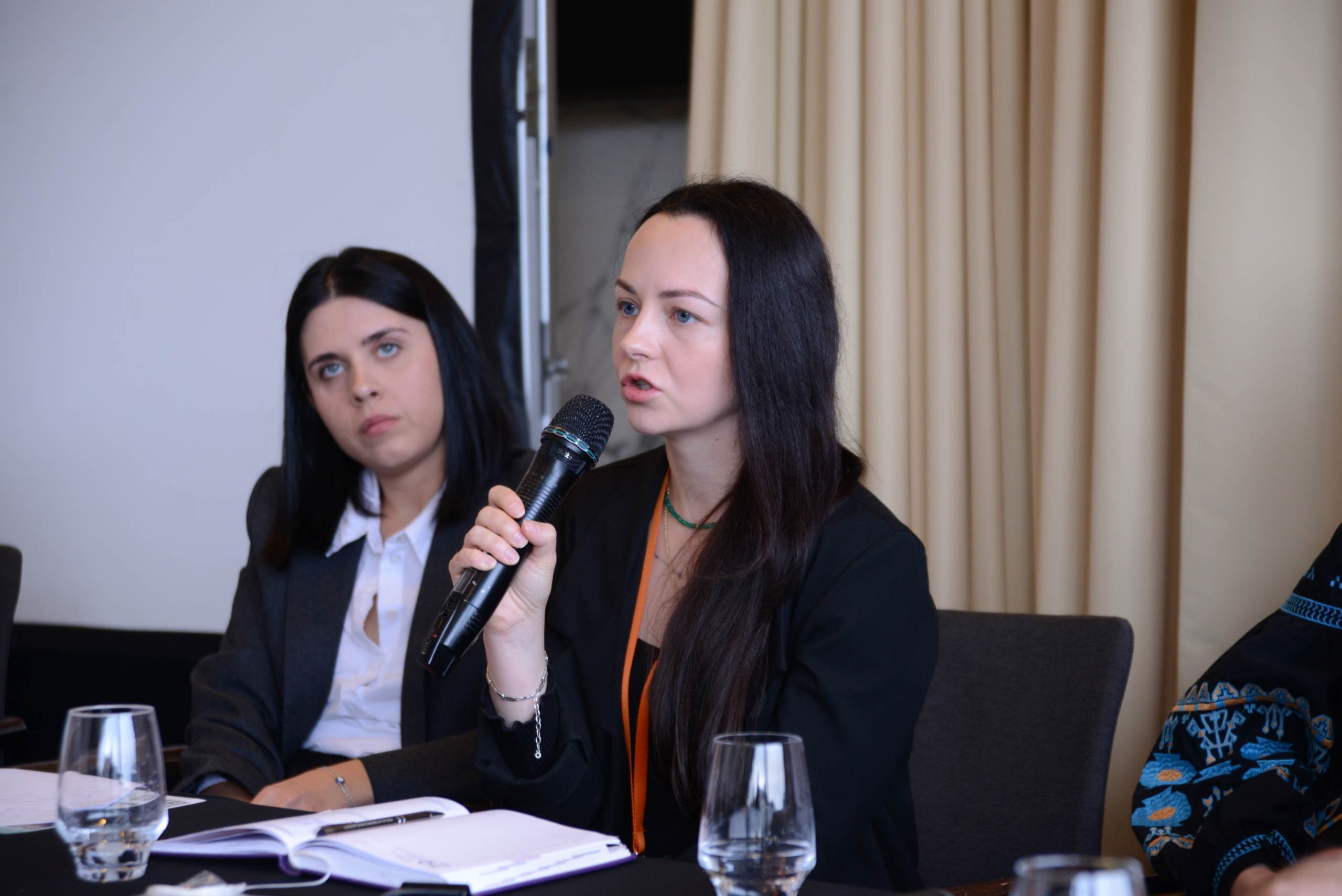 Photo credit: Media Initiative for Human Rights
Photo credit: Media Initiative for Human RightsFreelance Correspondent of Radio Liberty and political prisoner who served the full illegal term of detention in occupied Crimea, Vladyslav Yesypenko, shared his personal story:
“After the Russian occupation of Crimea in 2014, as a Radio Liberty journalist, I went on a business trip to Crimea, where I covered political, social and other events. I conducted short interviews with residents and investigated European companies that continued to cooperate with Russia in occupied Crimea. In March 2021, while carrying out a journalistic assignment in Crimea, I was detained by FSB officers. To discredit Radio Liberty, they planted a grenade in my car. Without any proper investigative procedures or access to a lawyer, I was taken to a basement, where I was beaten and tortured with electric shocks for more than 24 hours in order to force me to confess to espionage. In August 2022, a so-called ‘Crimean court’ under Russian control sentenced me to five years in prison for a crime I did not commit“.
Yesypenko emphasised that people in the occupied territories receive real prison sentences simply for expressing anti-war views on social media. He shared the story of Crimean blogger Yevhen Shved, who was sentenced to 2.5 years in prison for an online post. Vladyslav highlighted Ukrainian journalists Oleksiy Bessarabov, Volodymyr Dudka, and Dmytro Shtyblikov, whom Russian security services labelled as “saboteurs” and sentenced to long prison terms. Shtyblikov, after serving five years in a Russian prison, received a new sentence of 19.5 years for alleged “high treason”.
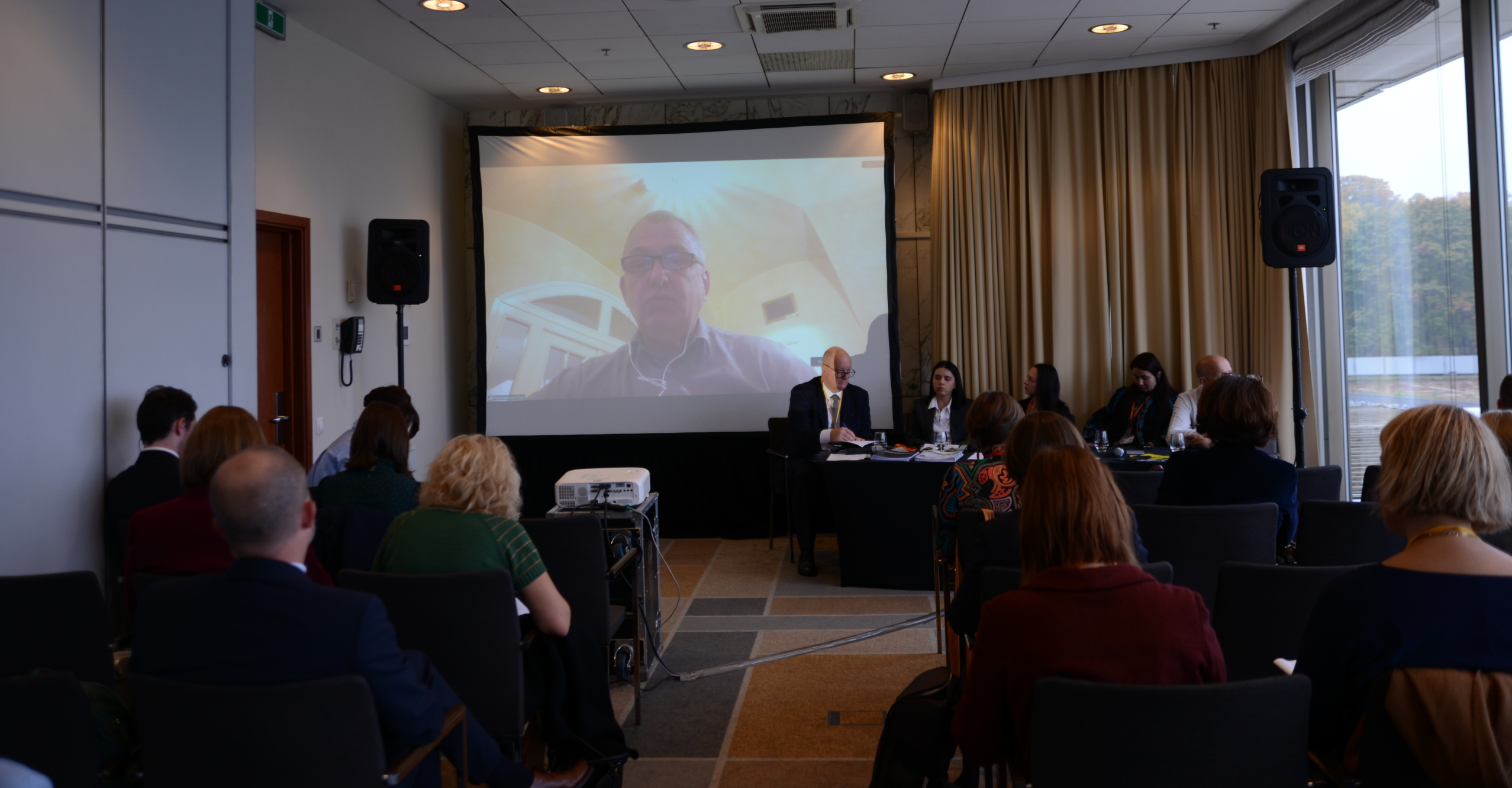 Photo credit: Media Initiative for Human Rights
Photo credit: Media Initiative for Human RightsLyubov Smachylo from the Media Initiative for Human Rights highlighted that since the beginning of the full-scale invasion, the practice of systematic unlawful arrests spread to other occupied territories of Ukraine, and may constitute a crime against humanity. She noted that since 2022, MIHR has documented 3,600 cases of arbitrary detention, with 2,277 people still in Russian captivity, including journalists.
“In 2023, six journalists and administrators of two Ukrainian Telegram channels were accused of terrorism and detained by Russian forces in the occupied Zaporizhzhia region, in south-east Ukraine,” said Smachylo.
She recounted the harrowing story of 19-year-old journalist Yana Suvorova from Melitopol, who was abducted in August 2023 for administering a pro-Ukrainian Telegram channel. She now faces fabricated charges of “terrorism and espionage” and is held in a Russian pre-trial detention centre known for torture. Others share similar stories of persecution: two media professionals arrested in Melitopol in August 2023, Heorhiy Levchenko and Vladyslav Hershon, were heavily sentenced by Russian courts: 16 and 15 years of imprisonment, respectively.
“There is a constant threat in the occupied territories, where freedom of expression is not just suppressed but effectively nonexistent. The only information people can access freely is Russian propaganda,” concluded Smachylo.
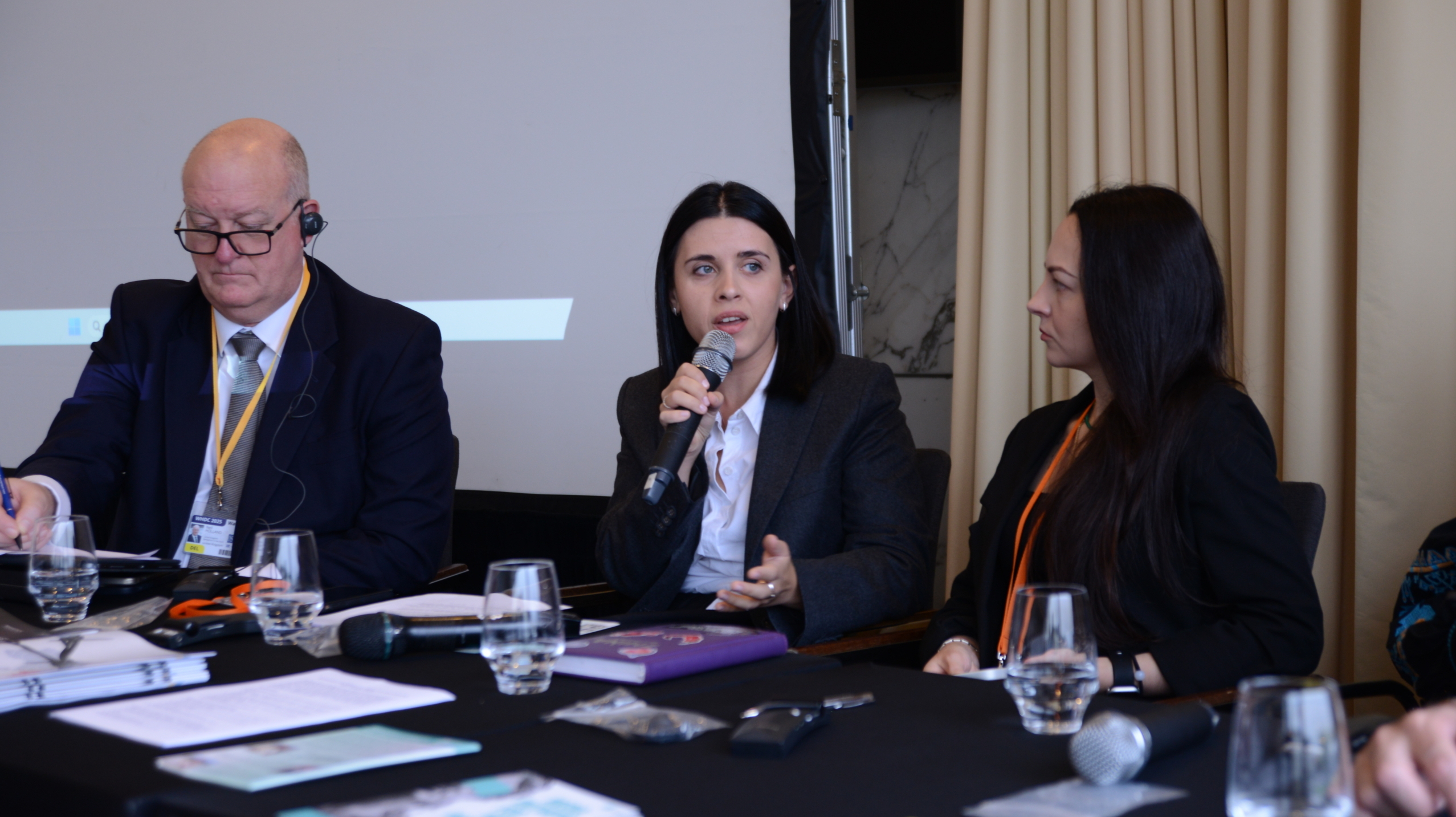 Photo credit: Media Initiative for Human Rights
Photo credit: Media Initiative for Human RightsThe event also highlighted the story of Dmytro Khyliuk, a UNIAN journalist and civilian detainee from the Kyiv region, who spent 3.5 years in Russian captivity. The journalist and his father were abducted by Russian forces on the street in early March 2022. On August 24, 2025, Dmytro finally returned from captivity.
“It was very cold in detention, and we had to keep moving around the prison cells just to avoid freezing. There was constant, deep hunger — some people even ate toothpaste. It didn’t help, but at least gave the illusion of eating something. When we saw a piece of soap, we imagined it was ice cream — that is how strong our hunger hallucinations were,” said Khyliuk, describing the conditions in detention.
He testified that, as another form of humiliation, a bright light was never turned off, while loud Soviet songs played nonstop from 6 a.m. to 10 p.m. to break detainees psychologically. Prisoners were constantly beaten and electrocuted — during morning and evening checks, on the way to the shower, even during walks. They were forced to sing the Russian national anthem, and those who refused were physically punished.
“The majority of Ukrainians — out of the 16,000 detained — remain there in the same conditions I went through. And there is no mechanism to bring them home,” noted Khyliuk.
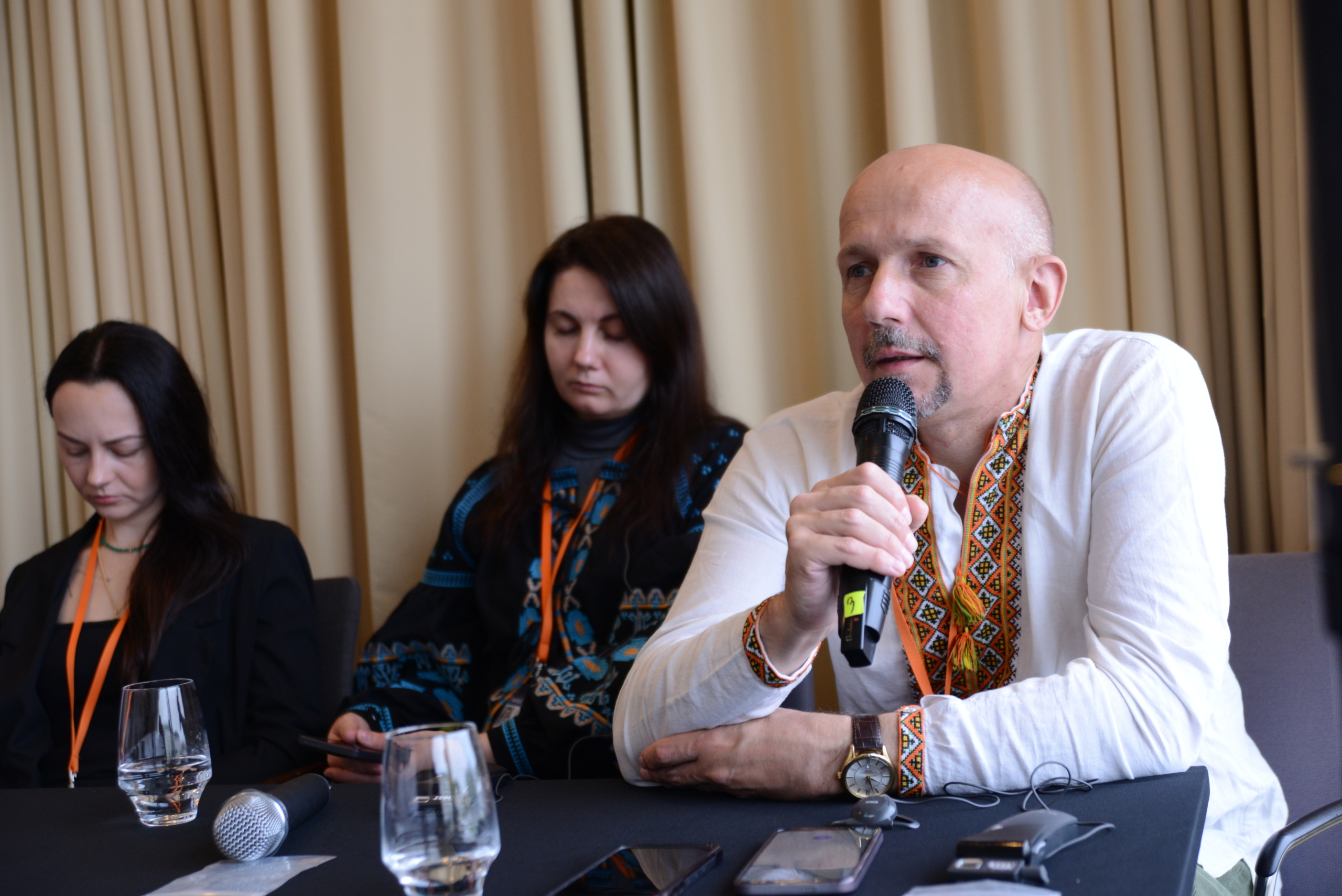 Photo credit: Media Initiative for Human Rights
Photo credit: Media Initiative for Human RightsValentyna Troian, a representative of the Institute of Mass Information, drew attention to the devastating toll that Russia’s war has taken on the media community: “A total of 119 journalists have been killed. Thirteen died while performing their professional duties. Others were killed in combat, or at home by Russian missiles“.
She cited the most recent tragedy — the death of French journalist Antoni Lallican on October 3, 2025, in a Russian drone strike, which also left his colleague Heorhii Ivanchenko severely injured and led to the amputation of his leg.
“In conflict zones, there are rules for how journalists should work — PRESS markings and blue vests. But these are not always used, because when Russians see the PRESS sign, they start shooting at you“.
Troian also described the systematic destruction of radio stations and television towers, and ongoing cyberattacks — all aimed at silencing Ukraine’s voice. “What they cannot conquer, they destroy,” Troian explained.
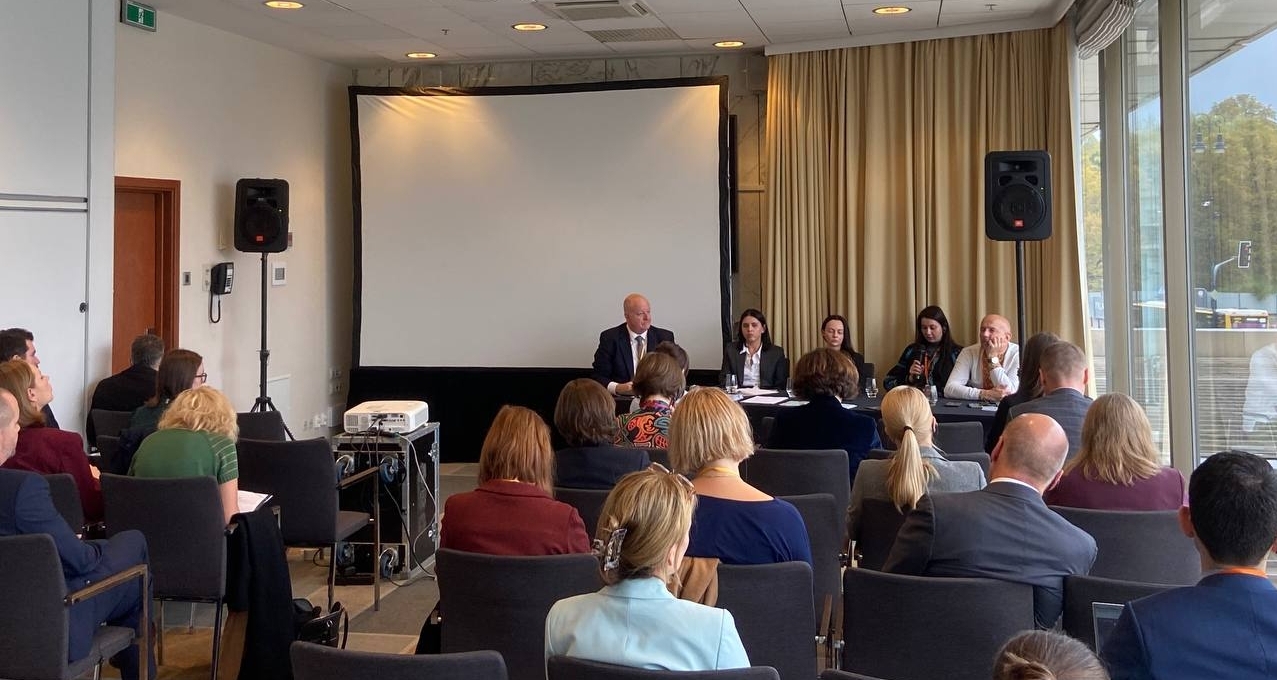
The speakers concluded with a united message: journalism in Ukraine today is both an act of courage and resistance. Each story — from Crimea to Kherson, from captivity to exile — reflects the unbroken determination of Ukrainian journalists to continue reporting, documenting war crimes, and defending the truth despite Russia’s aggression.
It was organised by Human Rights Centre ZMINA, Media Initiative for Human Rights, and Institute of Mass Information, with support of the UK Delegation to the OSCE, Human Rights House Foundation, and the Netherlands Helsinki Committee.
If you have found a spelling error, please, notify us by selecting that text and pressing Ctrl+Enter.


